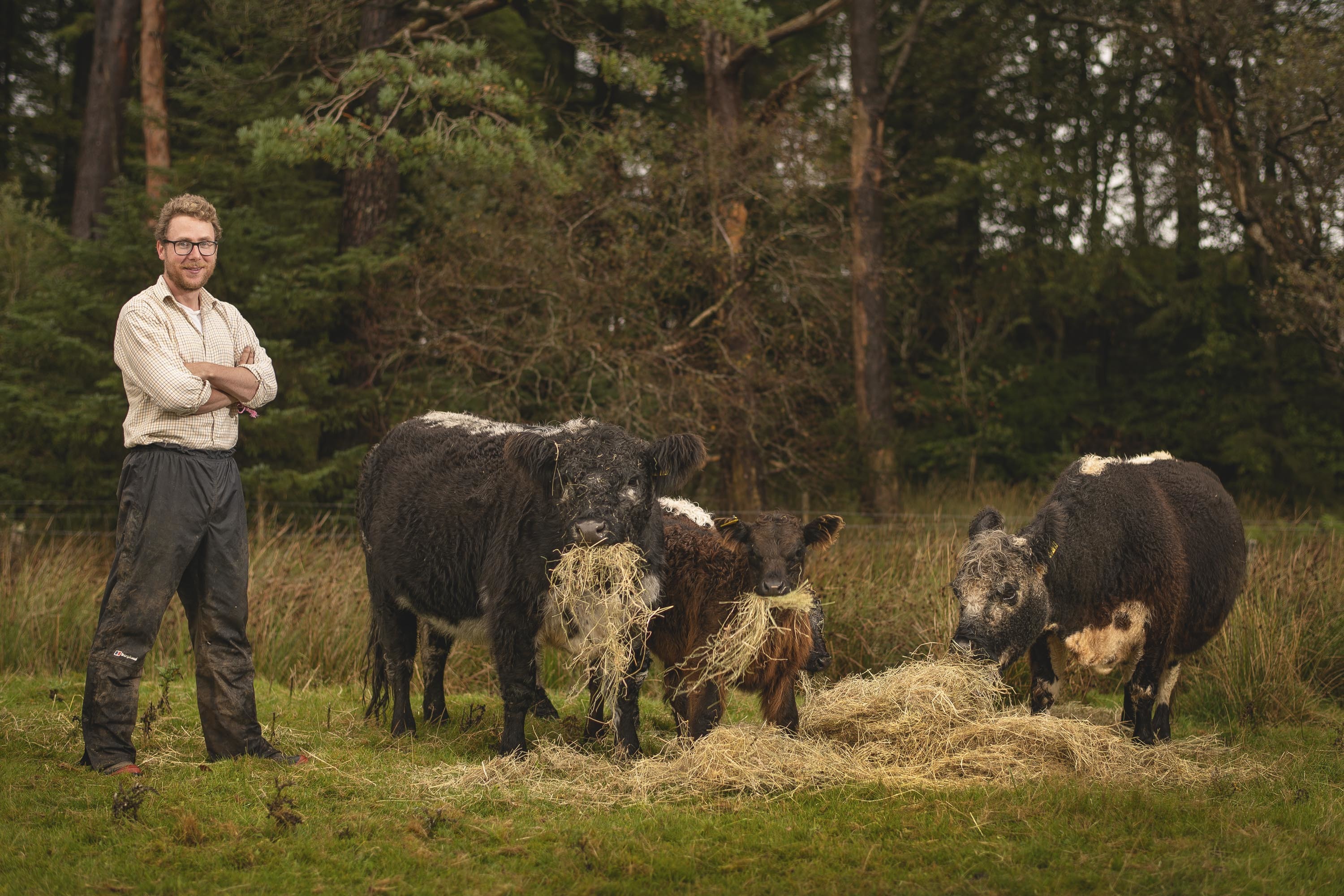
Native, by Galloway author and farmer Patrick Laurie, is published by Birlinn Books on 2nd April 2020.
When Galloway folk speak of home, we don’t talk of heather in bloom or the mist upon sea lochs and mountains. Our place is broad and blue and it smells of rain. Perhaps we can’t match the extravagant, pibroch scenery of the north, but we’re anchored to this place by a sure and lasting bond. There are no wobbling lips or tears of pride around these parts; we’ll leave that sort of carry-on to the Highlanders. We’ll nod and make light of it, but we know that life away from Galloway is unthinkable.
My ancestors have been in this place for generations. I imagine them in a string of dour, solid Lowlanders which snakes out of sight into the low clouds. These were farming folk with southern names like Laidlaw and Mundell, Reid and Gilroy, and they worked the soil in quiet, hidden corners without celebrity or fame. Lauries don’t have an ancestral castle to concentrate any feeling of heredity. We’ve worked in a grand sweep between Dunscore and Wigtown and now all of Galloway feels like it might’ve been home at one time or another. I was born to feel that there is only one place in this world, and I can hardly bear to spend a day away from it. Satisfaction alternates between quiet peace and raging gouts of dizzy joy.
Wild birds fly over Galloway. They move between the shore and the hills, and that journey brings them close at hand. I was brought up on a seaside farm where curlews spent their winter days in noisy gangs of a hundred and more. My father ran a mixed business based on sheep and beef cattle, and curlews flowed alongside him in rich furrows by the shore. When spring comes, curlews are blown uphill on warming winds to breed on the moors, and we followed them a few miles inland to pass many hours at work on my grandfather’s hill farm. I heard the birds crying on busy days when the sheep were clipped and the peat was cut.
Unremarkable in flight, obscure in plumage and secretive to the point of rumour, curlews are unlikely heroes. But then they call over the shore and sing beneath the high-stacked clouds and there is nothing else of value. No other wild bird has that power to convey a sense of place through song. It’s a grasping, bellyroll of belonging in the space between rough grass and tall skies, and you never forget it. The curlew’s call became the year-long sound of my childhood. I hear that liquid, loving list and I’m lying in the warm, sheepy grass again, a small boy in too-big wellies, hugged by old familiar hills.
- Buy the book: Wigtown Book Festival is official bookseller for the launch of Native
- Follow Patrick Laurie on twitter: @GallowayGrouse